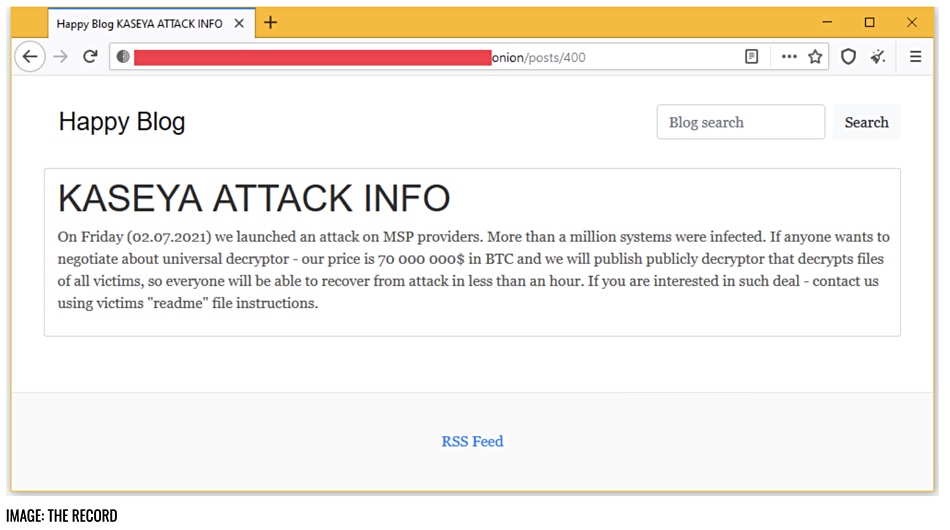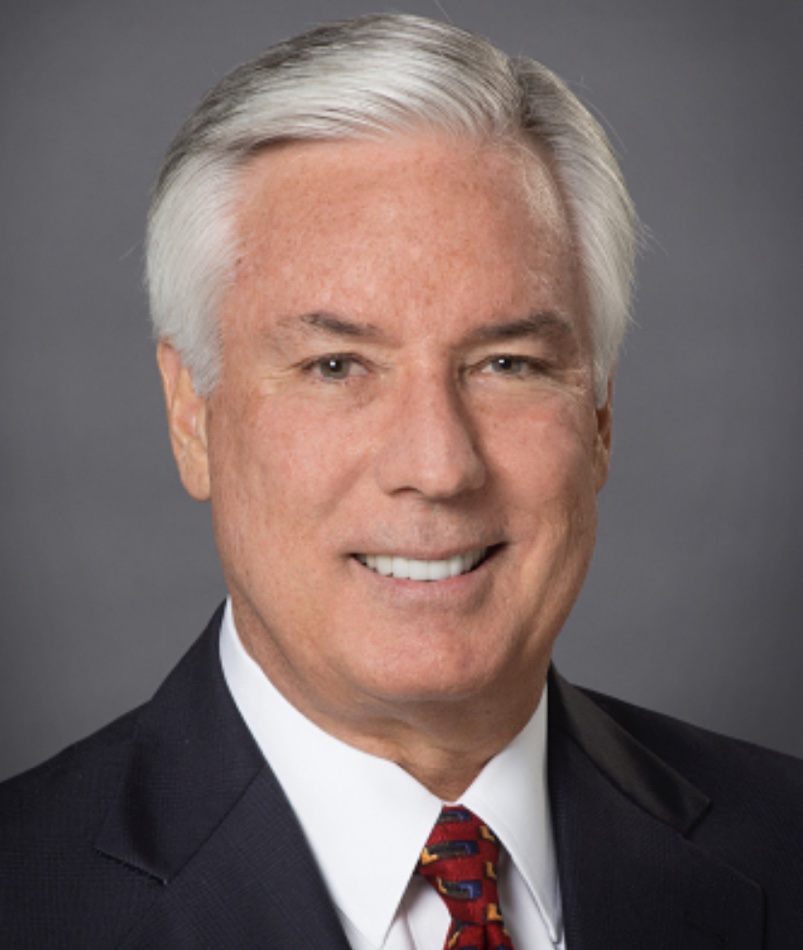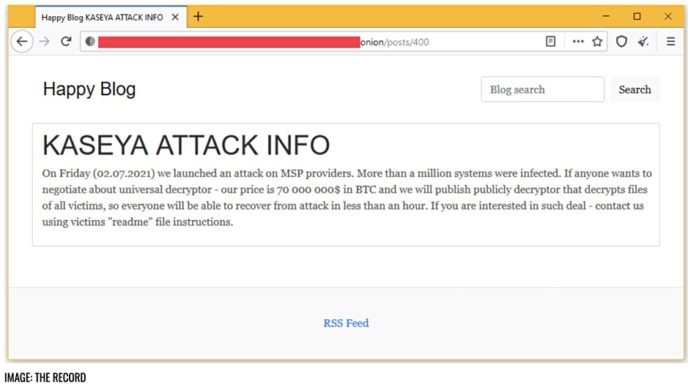We start with exec changes at IBM, followed by a new version of OpenShift, and Backblaze going to Dell.
In the shorter news items we see both Panzura and Qumulo active in the healthcare sector and the ReEvil gang wanting an eye-watering $70 million to free up Kaseya ransomware attack victims’ files.
IBM exec changes
As part of a set of exec changes rolled out by IBM CEO Arvind Krishna, IBM’s storage unit has a new boss.
The main change was Red Hat’s ex-CEO Jim Whitehurst stepping down from being an IBM President and taking on a senior advisor’s role. So, in a cultural sense, Red Hat has become Big Bluer, but Big Blue has not become Red Hatter.
The change we’re most interested in concerns Tom Rosamilia, who was Senior VP in charge of IBM Systems, which covered mainframes, servers and storage and the global business partners’ organisation. He had been in place since January 2015, and now moves on to become SVP for Cloud and Cognitive SW.
Ric Lewis becomes the new SVP of Systems. He is being hired from a Senior VP/GM role at HPE, looking after the Software-Defined and Cloud Group (SDCG). His product set included Hyperconverged Systems, Synergy/Composable Systems, Helion, Cloudsystem, Oneview, SDS/SDN technologies, and HPE’s Hybrid IT software stack. He had previously run datacentre infrastructure and, before that, enterprise servers at HPE, where he spent almost 18 years.
Lewis has no direct external storage product set experience. It’s debatable whether IBM Storage, which has suffered a multi-year revenue decline, will be turned around under his reign.
RedHat updates OpenShift
Red Hat announced version 4.8 of its open source OpenShift Kubernetes software platform. It includes:
- IPv6/IPv4 dual stack and IPv6 single stack support;
- OpenShift Pipelines for users to declaratively define, version and track changes to their application delivery pipelines alongside their application source code in Git repositories;
- OpenShift console, including the ability for Spring Boot developers to code and test locally before sharing the code, and scaling options for the developer console;
- OpenShift Serverless functions capability, available as a tech preview, enabling developers to create and run functions, on demand, on OpenShift;
- OpenShift sandboxed containers, a tech preview based on the Kata Containers open source project, providing a more secure container runtime using lightweight virtual machines and supporting extremely stringent application-level security.
Red Hat has expanded Red Hat OpenShift Certification to support a broader range of workloads. Partners can now enable and certify software solutions on OpenShift through either Operators or Helm charts.
The certified OpenShift ecosystem with Kubernetes Operators and Helm certification now includes over 150 partner products, with recently certified Operators including Intel OpenVINO Model Server and OpenNESS, Ionir container-native data platform for Kubernetes, MinIO hybrid cloud object storage, MongoDB Atlas cloud database service, and certified Helm charts for HashiCorp Vault.
Red Hat OpenShift 4.8 is expected to be generally available in July, including the ability to try it on the Developer Sandbox for Red Hat Openshift.
What the Dell? Backblaze Storage Pods
Up until now cloud backup and storage service provider Backblaze first built its own disk vaults, calling them Storage Pods, and then started using contract manufacturers, eventually moving to a hybrid contract manufacturer/self-build model. The most recent design is version 6.0 and has 25 different parts from 15 different manufacturers/vendors, plus the chassis and the hard drives. Each month it builds around 60 Pods, each weighing around 330kg.
Backblaze decided to try using Dell storage servers for version 7.0 Storage Pods in an Amsterdam data centre. It ordered two Backblaze Vaults worth of Dell servers for Amsterdam, and then another six. They are viewed as quasi-Storage Pods, and the idea has worked well enough.
There is more background about this in a Backblaze blog by principal storage cloud evangelist Andy Klein. He sums it up by saying: “Overall, it has been a positive experience for everyone involved — not perfect, but filled with learnings we can apply going forward.”
Shorts
Alluxio, a developer of open-source data orchestration software for large-scale workloads, announced the immediate availability of version 2.6 of its Data Orchestration Platform. It features an enhanced system architecture enabling AI/ML platform teams using GPUs to accelerate their data pipelines for business intelligence, applied machine learning and model training.
DDN is now selling Tintri IntelliFlash systems directly, so customers can buy them either from the Tintri organisation’s channel or from DDN itself. (Tintri is a division of DDN.)
The REvil gang is looking to get $70 million for a universal decryptor that could unlock all the business files locked during the Kaseya VSA ransomware attack. The Record has more details about what could be the highest ransom demand ever paid — if it gets paid. It could get all direct and indirect Kaseya customers affected by the ransomware off the hook.

Kingston Digital is shipping the DC1500M NVMe SSD in U,2 (2.5-inch) format with a PCIe Gen-3 four-lane interface. It has support for multiple namespaces and delivers consistent read/write latencies of <110 µs and <206 µs, respectively. The drives have speeds of up to 3GB/sec for reads, 700MB/sec for writes, up to 510K random read IOPS and 220,000 random write IOPS. Capacities are 960GB, 1.92TB, 3.84TB and 7.68TB.
MariaDB is collaborating with AWS to bring MariaDB SkySQL as a database-as-a-service (DBaaS) offering to AWS using Amazon Elastic Kubernetes Service (Amazon EKS), and AWS Fargate. SkySQL can deploy MariaDB on AWS as a distributed SQL database for scalable transaction processing, as a multi-master cluster for continuous availability, or as a multi-node columnar database for data warehousing and analytics requiring high availability and/or scalability.
In-memory computing supplier MemVerge and Hazelcast, which produces real-time streaming and memory-first database technologies, are partnering. Hazelcast technologies are being integrated with MemVerge memory virtualisation and in-memory snapshot technologies. The two will produce Big Memory reference architectures for Financial Services, starting with Basel III Compliance solutions that will be introduced in the second half of 2021.
Exoscale, the European Cloud Computing platform, is now offering the Enterprise File Fabric from Storage Made Easy through its Marketplace, supporting cloud customers across Europe.
Panzura is partnering Datatility to offer its Global File System-as-a-Service (GFSaaS) to hospitals and other healthcare institutions. GFSaaS is optimised by Datatility as a fully managed and always-on service for healthcare institutions looking to access, protect and manage their unstructured and untapped clinical data.
SingleStore unified distributed SQL transaction and analytics database is available in the Microsoft Azure Marketplace.
The SNIA Swordfish storage management standard extends the DMTF Redfish Scalable Platforms Management API Specification to define a comprehensive, RESTful API for managing storage and related data services. Version 1.2.2a is now available for immediate download here. Updates include:
- NVMe drive profiles and corresponding details added in the Swordfish NVMe Model Overview and Mapping Guide;
- A Swordfish Property Guide to easily look up property definitions;
- DMTF Redfish references.

Toshiba America has a new CEO: Larry White, who replaces the retiring Scott Maccabe.
Customers
Dutch service provider Bytesnet is using DDN storage — specifically EXAScaler parallel file systems. Bytesnet is using DDN DataFlow software to design, deploy and operate high-performance data workflows at scale from EXAScaler arrays.
Scale-out file system supplier Qumulo says it is popular in healthcare, with 150 per cent year-over-year growth in its customer roster. Customers include Biotechnology and genetic sequencing companies like Progenity, global healthcare research organisations like the Institute for Health Metrics and Evaluation (IHME), and healthcare providers such as Dayton Children’s Hospital.
Spectra Logic announced that post-production studio ColorTime deployed Spectra’s StorCycle Storage Lifecycle Management software to automate cleanup of its production storage area network (SAN) and free up space for incoming digital content. ColorTime also installed a BlackPearl Converged Storage System, a 500TB BlackPearl Object Storage Disk System for quick recall of active projects, and a Spectra Stack Tape Library to archive high-resolution digital media.
Virtana says its Migrate SaaS offering is gaining momentum. Partner Presidio delivered cloud migration efficiency and cost optimisation for a national insurance company, accelerating its move to Amazon Web Services (AWS) by 70 per cent.








